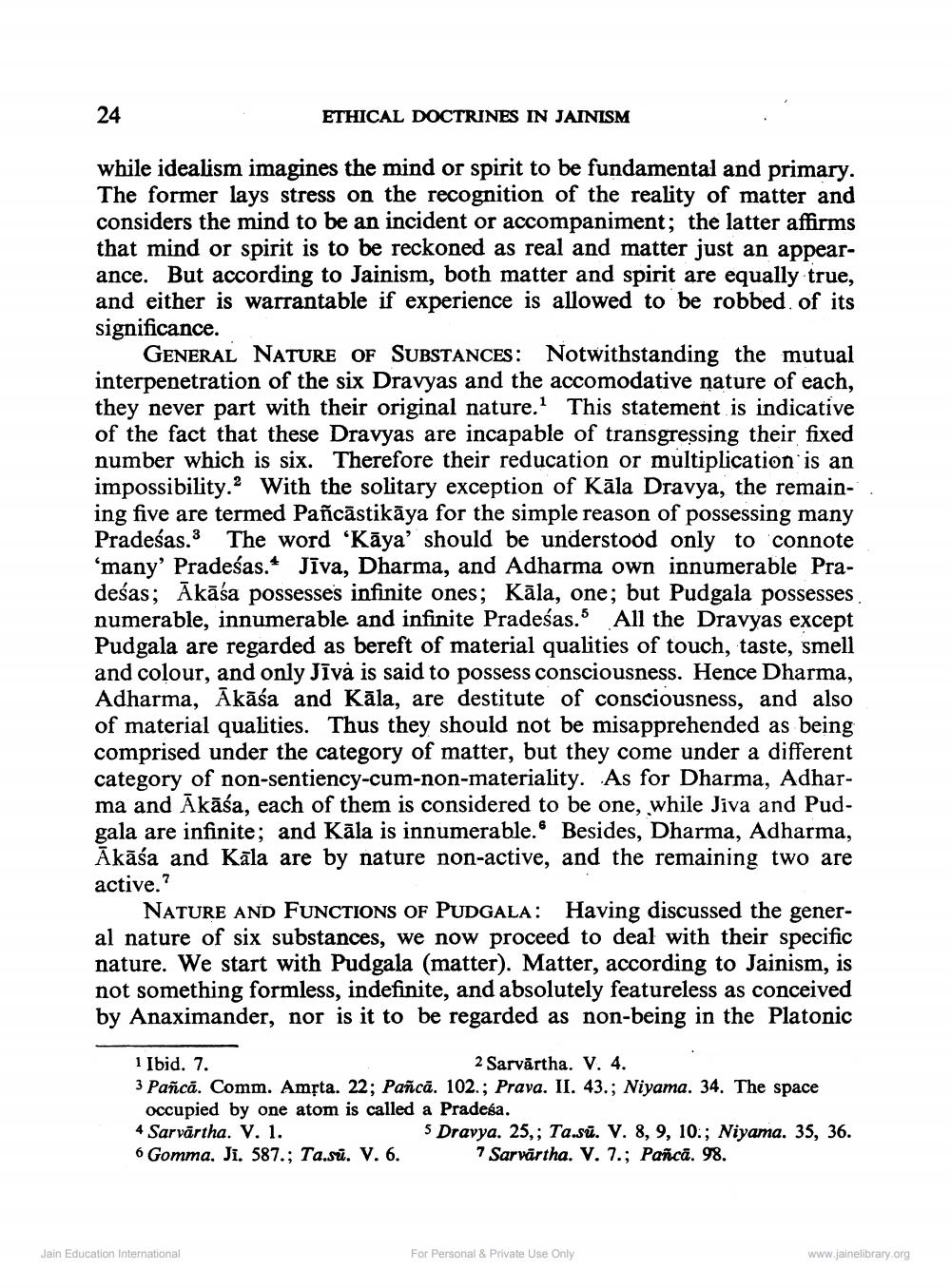________________
24
ETHICAL DOCTRINES IN JAINISM
while idealism imagines the mind or spirit to be fundamental and primary. The former lays stress on the recognition of the reality of matter and considers the mind to be an incident or accompaniment; the latter affirms that mind or spirit is to be reckoned as real and matter just an appearance. But according to Jainism, both matter and spirit are equally true, and either is warrantable if experience is allowed to be robbed of its significance.
GENERAL NATURE OF SUBSTANCES: Notwithstanding the mutual interpenetration of the six Dravyas and the accomodative nature of each, they never part with their original nature.1 This statement is indicative of the fact that these Dravyas are incapable of transgressing their fixed number which is six. Therefore their reducation or multiplication is an impossibility. With the solitary exception of Kāla Dravya, the remaining five are termed Pañcāstikāya for the simple reason of possessing many Pradeśas.3 The word 'Kaya' should be understood only to connote 'many' Pradeśas.* Jīva, Dharma, and Adharma own innumerable Pradeśas; Ākāśa possesses infinite ones; Kāla, one; but Pudgala possesses numerable, innumerable and infinite Pradeśas.5 All the Dravyas except Pudgala are regarded as bereft of material qualities of touch, taste, smell and colour, and only Jīva is said to possess consciousness. Hence Dharma, Adharma, Ākāśa and Kāla, are destitute of consciousness, and also of material qualities. Thus they should not be misapprehended as being comprised under the category of matter, but they come under a different category of non-sentiency-cum-non-materiality. As for Dharma, Adharma and Akāśa, each of them is considered to be one, while Jiva and Pudgala are infinite; and Kāla is innumerable. Besides, Dharma, Adharma, Akāśa and Kāla are by nature non-active, and the remaining two are active."
6
NATURE AND FUNCTIONS OF PUDGALA: Having discussed the general nature of six substances, we now proceed to deal with their specific nature. We start with Pudgala (matter). Matter, according to Jainism, is not something formless, indefinite, and absolutely featureless as conceived by Anaximander, nor is it to be regarded as non-being in the Platonic
1 Ibid. 7.
2 Sarvartha. V. 4.
3 Pañcă. Comm. Amṛta. 22; Pañcă. 102.; Prava. II. 43.; Niyama. 34. The space occupied by one atom is called a Pradeśa.
4 Sarvärtha. V. 1.
5 Dravya. 25,; Ta.su. V. 8, 9, 10.; Niyama. 35, 36. 7 Sarvartha. V. 7.; Pañcă. 98.
6 Gomma. Ji. 587.; Ta.su. V. 6.
Jain Education International
For Personal & Private Use Only
www.jainelibrary.org




